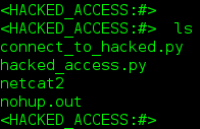
openSUSE 13.1 has been released. I just installed it on an old HP 6530b laptop without issue. Screen resolution, volume, wireless internet, and USB device recognition all seem to work without any additional mucking around. Of course things may not go so smoothly with all laptops/computers depending on the hardware, however, I’ve seen hardware compatibility improve quite a bit over the last several years. Upon booting-up it seems like all works well and my wireless network is easily picked-up. The openSUSE Linux distribution sure has come a long way and is one of my favorite Linux distributions.
A few useful software packages I typically install are listed below along with respective install procedures.
1. Oracle Java JDK (Programming Language)
– download the Oracle Java RPM from here
– open a terminal window and go to the directory of the downloaded file
– change to the directory where you downloaded the RPM. In this case the filename is “jdk-8u5-linux-x64.rpm”; depending on the current release version your filename may be slightly different; adjust the filename/commands as needed.
– Enter the following command and respective root password: su -c “zypper install jdk*.rpm”
Enter the below commands in order to manage different Java versions installed.
– sudo su
– zypper install update-alternatives
– update-alternatives –install /usr/bin/java java /usr/java/jdk1.7*/bin/java 1065
– update-alternatives –install /usr/bin/javac javac /usr/java/jdk1.7*/bin/javac 1065
– update-alternatives –install /usr/bin/jar jar /usr/java/jdk1.7*/bin/jar 1065
– update-alternatives –install /usr/bin/javaws javaws /usr/java/jdk1.7*/bin/javaws 1065
Now you can select which Java version to utilize as needed via the below command.
– update-alternatives – -config java
The alternative with the highest priority determines the default value when in automatic mode. Additionally the local administrator may override the automatic selection with a manual selection.
2. Eclipse (IDE for Java and other programming languages)
Although you could use ‘Yast’ or ‘zypper’ to install Eclipse from the openSUSE repositories, often, the latest version is not available. You can obtain the latest Eclipse version directly from the Eclipse site.
– download the Eclipse RPM from here
– open a terminal window and go to the directory of the downloaded file
– uncompress the file via the following command “tar xzvf eclipse-standard-kepler-SR2-linux-gtk-x86_64.tar.gz”; note, depending on the version downloaded, the filename may be different.
– rename the uncompressed folder: mv eclipse-standard-kepler-SR2-linux-gtk-x86_64 eclipse
– move the folder: mv eclipse /opt
– create a symbolic link where desired via the following command: “ln -s /opt/eclipse/eclipse eclipse”
3. PyDev Eclipse Plug-in (Eclipse plug-in for Python development)
– Although you can download and install the package manually, it is much easier to add the “http://pydev.org/updates” link to the Eclipse update manager and download and install automatically through the Eclipse GUI.
4. EPIC Eclipse Plug-in (Eclipse plug-in for Perl development)
– Although you can download and install the package manually, it is much easier to add the “http://e-p-i-c.sf.net/updates” link to the Eclipse update manager and download and install automatically through the Eclipse GUI.
5. VLC (Video Player)
Do not use the VLC repositories listed on the official VLC site. I could not get VLC to work correctly using the package downloaded from the site. Upon some research, I found many others having the same issue. Instead add a mirror from the Packman site used by many to your software repository list and then install from there.
6. GIMP (Graphics/Photo Editing)
– feature-full photo-editing software included with the openSUSE build
7. Gwenview (Photo Viewer)
– KDE-only photo viewer included with the openSUSE build
8. KSnapshot (Screen Capture Utility)
– KDE-only screen capture utility included with the openSUSE build
9. Filezilla (FTP/SFTP client)
– FTP/SFTP client utility that can be easlily installed via Yast software management or zypper via the “zypper install filezilla” command
10. LibreOffice (Office Suite)
– office suite includes spreadsheet, document, presentation, and database apps; a Linux alternative to Microsoft Office.





 Twitter
Twitter LinkedIn
LinkedIn Youtube
Youtube RSS
RSS